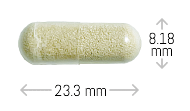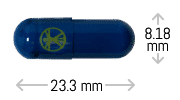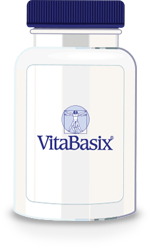The digestive ecosystem is home to 400 to 500 different species of bacteria. In the flora of the small intestine and colon, bacteria with beneficial properties dominate over germs that cause diseases. These “friendly” microorganisms maintain the immune defence, support the absorption of nutrients and enable the elimination of undigested food residues, which are ideally then excreted. In this way, proteins, fats, carbohydrates, vitamins, minerals and secondary plant components can be easily absorbed by the body. The intestinal mucosa also activates immune cells, which are distributed to all parts of our body via the lymphatic channels and thus strengthen our immune system.
An optimal intestinal cure consists of two steps that correspond to the daily rhythm of the body. First, live bacteria (probiotics) are provided to normalize the bacterial flora in the intestine. Then, fibrous substances are introduced that cannot be digested by the human digestive system (prebiotics) but create a perfect internal environment for the probiotics and ensure that the “friendly” bacteria adhere to the intestinal wall and find optimal conditions in the digestive tract.
Probiotics:
Probiotic foods include cheese, milk, kefir, yoghurt, sauerkraut, kimchi, miso and Jerusalem artichokes. Fermented drinks such as kombucha are also included. All these foods contain more or less of the following bacteria:
Lactobacillus acidophilus: This bacterium forms several substances (e.g. lactic acid) during food utilization that create an unfavorable climate for undesirable microorganisms. By producing niacin, folic acid and pyridoxine, Lactobacillus can also contribute to the formation of a normal intestinal flora. Lactic acid-producing bacteria can help support the immune system, promote normal cell growth and help keep cholesterol levels in the normal range. However, it is necessary for these friendly bacteria to be present in sufficient numbers so that they can overcome the gastric acid barrier present in the stomach and thus reach the intestine alive.
The probiotic Lactobacillus plantarum – commonly known to be present in fermented sauerkraut – converts oxygen into hydrogen peroxide. This liquid compound kills unwanted bacteria and destroys any toxins.
Lactobacillus paracasei is a probiotic that converts carbohydrates in the intestine into lactic acid, acetic acid and hydrogen peroxide and can thus enable efficient digestion. Lactobacillus paracasei also effectively breaks down the sugar in dairy products. In addition, this probiotic strain has been shown to support the immune system thanks to its breakdown products.
Among 52 strains, Lactobacillus rhamnosus proved to be particularly resistant to pathogenic bacteria and gastric acid. It adheres particularly intensively to the intestinal mucosa and thus helps the other probiotics to grow.
Bifidobacterium bifidum is particularly effective in the large intestine where, like other intestinal symbionts, it produces B vitamins and can support the absorption of vitamins, calcium and other minerals. The lactic acid and acetic acid produced by the symbiotic intestinal bacteria can improve the acidity of the intestinal tract, making it more resistant to disease-causing bacteria and moulds. In the process, the conversion of nitrate (in vegetables) into nitrites is inhibited.
Bifidobacterium lactis is a probiotic superstar that has been linked to a variety of benefits. Among other things, it has been shown that B. lactis, can provide benefits in relation to metabolic syndrome.
Saccharomyces boulardii, on the other hand, is a yeast with probiotic properties. Originally found on the peels of mangosteen and lychee fruits, this yeast can be used to treat digestive disorders. Like other probiotic strains, S. boulardii can promote a strong immune system.
Prebiotics:
Tens of thousands of plants contain fructo-oligosaccharides (FOS), also known as prebiotics. Particularly high concentrations of these fibers are found in rye, garlic, onions, bananas, burdock and honey. Due to the lack of certain enzymes in the digestive system, FOS cannot be completely digested by humans, but are broken down into short-chain fructo-oligosaccharides (scFOS), which adhere to the mucous membrane of the intestinal tract. In this way, they provide a perfect breeding ground for the “friendly” bacteria that are able to absorb and digest these sugars.
Closely related to fructo-oligosaccharides, inulin is a polysaccharide produced by certain plants and is also known as alant starch. This plant compound, which is derived from chicory root fiber and Jerusalem artichoke (Topinambour), functions as an effective prebiotic fiber and can help beneficial bacteria in the digestive tract to thrive. When inulin and its related substances accumulate in the gut, their additional bacteriostatic properties can also help restore normal intestinal flora. Inulin also swells in the stomach and can help curb feelings of hunger.
Balanced mineral blends can optimize acid-base balance, support the flourishing of normal gut flora and improve the body’s absorption of valuable micronutrients.
If the absorption of these pre- and probiotics through the diet is not sufficient or if there is an increased need, these symbiotics can be supplemented through special food supplements. Some of these nutrients are better tolerated in the morning and activate the body, while others are better utilized in the evening and support regeneration. Chronobiologically oriented products take this into account accordingly.






 Chronobrands
Chronobrands




Reviews
There are no reviews yet.